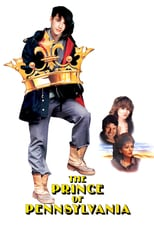
Movies with all the Smartest Deals Now
The tendency to attribute the essential role to the filmmaker (or director) will culminate in France with the “policy of the authors” promoted by the Cahiers du Cinéma and the “New Wave”: this will be opposed in particular (through in particular a famous article by François Truffaut) in “French quality” cinema, which stood out in particular for close collaboration between directors and scriptwriters (including the famous “couple” by Aurenche and Bost) with a predilection for adaptations of literary works. In free-putlockers.com you can find the best films now.
The Right Policy for You

If the “policy of the authors” quickly triumphed (especially at the critical level), the debate on the relative importance of the scriptwriter and the director is still regularly rekindled today (often in a renewed or diverted form) to the extent where the film is actually the fruit of a collective work, and where it is impossible to decide a priori and necessarily arbitrarily the exact responsibility of each other.
- It will be noted, moreover, that, while in France the director’s work was favored over scriptwriting, in the United States, on the other hand, an essential role was taken and long assumed by producers who have often managed to impose their trademark on all the films they have produced (this was the case, among others, for RKO Pictures, a number of films of which have been recently reissued as a DVD collection with the RKO label, supposed sign of a characteristic style) [20]. If there too, the filmmakers have succeeded in making the importance of their role recognized (even if this recognition is less clear than in Europe), it is, in fact, difficult to distinguish the part taken by the producers in the conception, the definition and production of films, particularly American ones.
Finally, and this is not at all anecdotal, many actors sometimes intervene decisively in the making of a film, whether by their simple work as interpreters or by interventions at the level of the script or staging. If the role of the actors, especially if they are famous, is often overestimated by a large audience who may even believe that it is they who “make the film”, it can also be neglected in an outrageous way for example in academic analyzes focused mainly on the point of view of the filmmaker (certain analyzes are of course an exception).
In practice
What can we conclude from all this, especially in a situation of animation? Spontaneously, most spectators attribute the responsibility for the film to a single author who would act freely and independently in his choices, which is undoubtedly legitimate and which corresponds to the actual situation of making a large number of films today. hui. Nevertheless, it is also necessary to question this context of realization which can turn out to be more complex or more contradictory than it seems at first glance. Interviews, press articles, various analyzes can shed relevant light on this subject.
Oliver Twist by Roman Polanski
Thus, a filmmaker can adapt a scenario (for example literary) while keeping a critical distance compared to this scenario (because it is dated, simplistic, unilateral…). When Roman Polanski, for example, staged the adventures of Oliver Twist (in 2005), he directed a film aimed at a young audience (children or tweens) while telling a story no doubt famous but written in the 19th century in an extremely conservative Britain.
